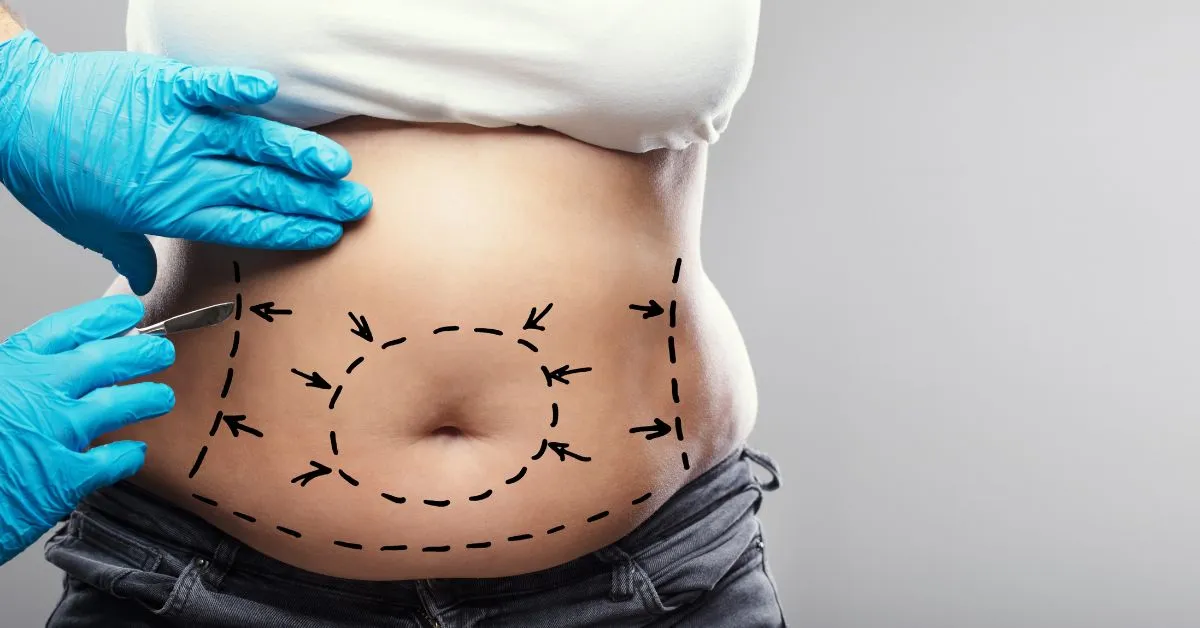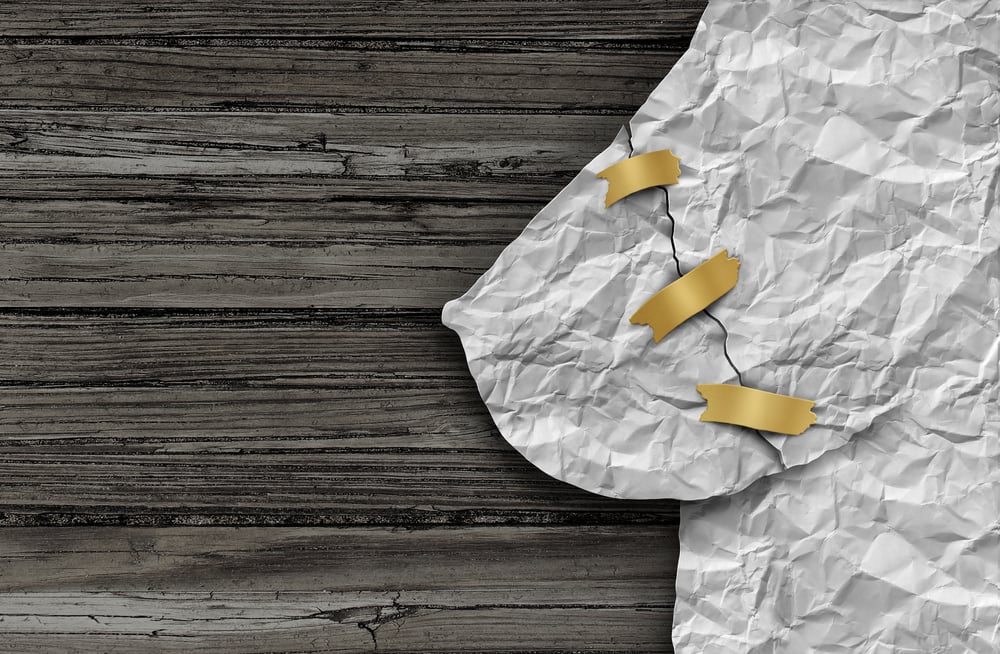Liposuction is a simple way to get rid of stubborn fat. Yet, it is crucial to realize that it’s a surgical operation with risks and possible side effects.
In this post, we’ll talk about signs of bad liposuction, such as loose skin and fibrosis. We will also discuss the negative results of neck and chin liposuction and what you need to do to avoid such mishaps.
What Are The Signs Of Bad Liposuction?
- Significant bleeding: If there is excessive bleeding during or after the procedure, this may be cause for concern.
- Infection: Because liposuction involves surgery, there is always a chance of infection. Redness, swelling, and drainage from the incision site are symptoms of infection.
- Tingling or numbness: If you feel tingling or numbness where the procedure was done, this may be a sign of nerve injury.
- Unequal results: If one section of the body is not proportionate to the other areas, the liposuction surgery may have been uneven or improperly executed.
- Excessive swelling or fluid buildup: These symptoms may point to an issue with the incisions or the drainage of the fluid from the location where the treatment was performed.
- Prolonged pain: Prolonged or severe pain following a procedure may be a sign of an issue with the surgery or a consequence.
- Scarring: If there is apparent scarring from the incisions, this may be a sign that the incisions were not adequately closed or that the healing process was problematic.
It is crucial to call your doctor right away if you have any of these symptoms.
Some common ways that liposuction goes wrong are
- Botched liposuction
- Loose skin
- Fibrosis
- Scarring and Hematoma after Chin and Neck liposuction
Botched Liposuction
Uneven results, significant scarring, extreme bleeding, infection, or severe problems like nerve damage, organ damage, or even death, are all possible ways where liposuction procedures go wrong. However, the liposuction complication rate is approximately 5%, mostly minor issues.
The treatment can be deemed “botched” if an untrained or unqualified practitioner does it or if difficulties arise while it is being done.
Thus, it’s crucial to select a licensed and skilled plastic surgeon and to thoroughly weigh the risks and benefits of the operation before undergoing surgery.
Loose Skin After Lipo
People who have had liposuction, frequently worry about loose skin after the treatment. Though liposuction eliminates extra fat from certain body parts, it does not tighten saggy or loose skin. This is because only fat (not skin) is removed during the surgery.

If the skin lacks the suppleness necessary to adapt to the body’s new shapes after the fat is removed, liposuction may occasionally result in loose skin.
Following liposuction, the quantity of loose skin that develops is influenced by several factors:
- Patient’s age
- Skin elasticity
- Amount of weight lost
In some circumstances, additional treatments like a stomach tuck surgery or a skin tightening technique can be used to treat loose skin. To decide the best course of action for correcting loose skin following liposuction, it is crucial to speak with a plastic surgeon.
Fibrosis After Lipo
The development of extra fibrous tissue in the area where liposuction has been done is known as fibrosis after liposuction.
It happens when the body attempts to heal the area following the treatment, and the healing process causes an excessive amount of scar tissue to grow.
Firmness and irregularity in the affected area may arise from this.

In rare cases, you might experience pain and discomfort.
Nonetheless, you can avoid the incidence of fibrosis by carefully adhering to the postoperative guidelines, such as:
- Avoiding excessive physical activity
- Donning compression garments
- Keeping the treated region clean and moisturized
In some circumstances, massage or other physical therapies may also be suggested to help lower the risk of fibrosis and enhance the appearance of the treated area.
Neck Liposuction Gone Wrong
To enhance the appearance of the neck, a cosmetic treatment called neck liposuction involves removing extra fat from the area. But there’s always a chance that some issues might arise. Below are a few issues you need to watch out for:
- Unsatisfactory results: First of all, you might not be happy with the plastic surgery’s outcome. Like, you had high hopes, but the results were not satisfactory. No doubt, you get disappointed!
- Infection: If you don’t take care of the infection ASAP, it could get serious and create havoc. It might spread to other body parts as well.
- Hematoma: After the procedure, hematomas, which are collections of blood outside of blood vessels, may develop. Discomfort and edema may result from this.
- Nerve damage: The neck is a complex location with numerous significant nerves, and there is a chance that this surgery will harm these nerves.
- Scarring: The procedure’s incisions may leave behind scarring, which can be observable and unpleasant.
- Asymmetry: The operation could leave one side of the neck area looking different from the other.
- Persistent swelling: Some patients may continue to feel neck edema long after the surgery is finished.
Chin Liposuction Gone Wrong
Sometimes there are chances of chin liposuction going wrong. This might create some problems like:
- Unsatisfactory outcomes: If the surgeon takes out too much or too little fat, the face might look distorted. Obviously, you won’t be satisfied with the results.
- Scarring: Scarring might form at the incision site if the doctor doesn’t close the incisions properly.
- Numbness or tingling: During the liposuction procedure, nerve damage may lead to numbness or tingling in the chin and neck region.
- Infection: This might cause edema, discomfort, and redness.
- Asymmetry: If one side of the chin or neck is distinct from the other, the result can be asymmetrical.
- Hematoma: During or after liposuction, bleeding can cause hematomas. These are collections of blood outside of blood vessels.
What Should I Do If I Have Had Bad Liposuction?
The very first thing you should do if you’ve had a negative liposuction experience is to get in touch with your plastic surgeon and express your concerns. He/She will look at the treated areas and provide you with the necessary advice. By checking the extent and type of the issues, the doctor will recommend revision liposuction or other remedial operations.
You might wish to get a second opinion from a different plastic surgeon or a cosmetic surgery expert if you are not happy with the response or if you think you are the victim of medical misconduct.
On such occasions, you might also wish to think about filing a lawsuit. Analyzing your options and the best course of action with a lawyer who focuses on medical negligence is the most suitable option.
How Can I Avoid Bad Liposuction?
- Pick a qualified cosmetic surgeon with plenty of experience: Make sure the surgeon you select is board-certified by the American Board of Plastic Surgery and has a lot of knowledge about liposuction.
- Outline your expectations: It’s crucial to talk about your objectives and expectations with your surgeon before the procedure. Ensure your surgeon is aware of your goals and that you are aware of the limitations of what liposuction may do.
- Take into account your health: Liposuction is a surgical operation, and just like any surgery, some complications might arise. Hence, make sure to inform your doctor about your health issues and discuss your concerns.
- Comply with pre-operative instructions: Your surgeon will give you advice on how to get ready for the treatment, including instructions on how to stop smoking and avoid taking certain drugs. To lower the danger of difficulties, it is crucial to carefully follow these directions.
First of all, whether cosmetic surgery is right for you?
Talk with a board certified surgeon and get a second opinion to make informed decision.
In A Nutshell
No matter what actions you take, it’s crucial to have reasonable expectations. Though liposuction is a cosmetic procedure with risks and potential problems, selecting a skilled surgeon with years of expertise will guarantee a safe and effective outcome. Thus, it is necessary to do a thorough research before choosing your liposuction expert.
FAQs
A: The signs of bad liposuction are:
1. Significant bleeding
2. Infection
3. Tingling or numbness
4. Unequal results
5. Excessive swelling or fluid buildup
6. Prolonged pain
7. Scarring
A: The incidence of complications from liposuction varies depending on various factors, like the surgeon’s skill, the patient’s health, and the extent of the liposuction procedure. Nevertheless, according to the American Society of Plastic Surgeons, serious complications from liposuction are relatively rare.
Reference
https://www.garzaplasticsurgery.com/blog/are-you-out-of-alignment-a-chiropractor-can-help
https://centreforsurgery.com/botched-liposuction-can-it-be-corrected/









